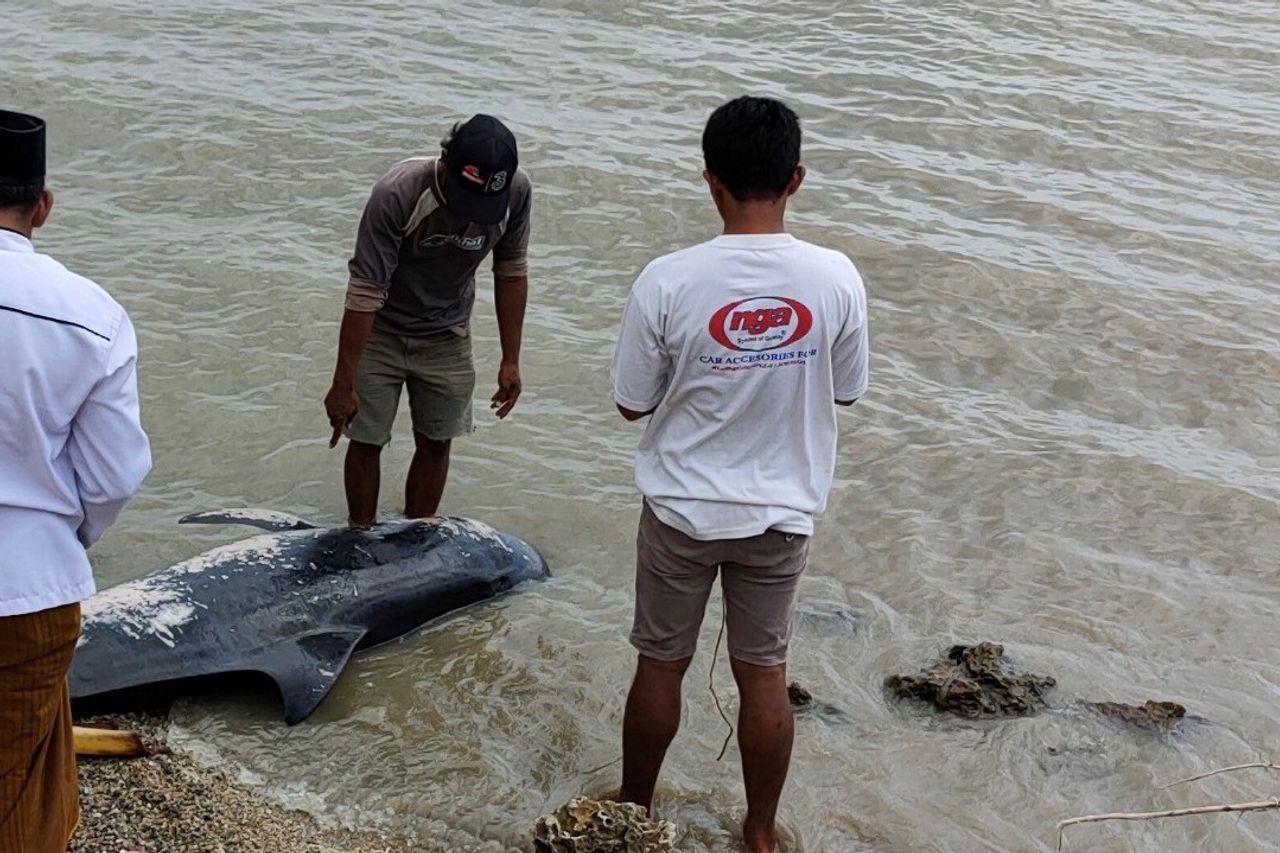Handling Of Stranded Pilot Whales On Madura Beach By The Ministry Of LHK

JAKARTA - Dozens of short finned pilot whales or Globicephala macrorhynchus were stranded on the southern coast of Madura Island, to be precise in Patereman Village, Modung District, Bangkalan Regency, Thursday, February 17. Of the 52 animals found, 3 were alive, and 49 were dead.
The evacuation was carried out by the East Java KSDA Center, after coordinating with related agencies including BPSPL, PSDKP, Marine Service, Provincial Public Works Office. East Java, Polairud, local Police, TNI, Village Head, and Camat. The handling team for stranding whales also involved FKH Unair.
"The Wildlife Rescue Unit (WRU) Team of the East Java KSDA Center on Friday morning, when the tide receded, dozens of tails were seen stranded on the beach," explained the Head of KSDA Wil. II BBKSDA East Java RM. Wiwied Widodo was quoted from the Ministry of Environment and Forestry website.
The Team for handling stranded whales is divided into several teams, consisting of a location security team by the TNI and Polri, a postmortem team by 2 veterinarians, 5 assistants and 1 person from the East Java BBKSDA, the Antemortem team consisting of 1 veterinarian, 1 assistant and 2 people from BBKSDA East Java and the burial team coordinated by the local Village Head.
Pilot whales are a type of marine mammal that is protected by law and is included in the list of protected animals under Permen LHK No. P.106 / MENLHK / SETJENKUM.1 / 12/2018 Year 2018. Globally, they are listed in the Appendix II Convention on International Trade in Endangered Species (CITES).
"Shortfin pilot whales can be found in warm climates and tropical waters around the world. Generally, they live far from the coast," said Wiwied.
Furthermore, Wiwied said that necropsy activities could not be carried out, with the consideration that the living whales that had returned to the high seas would not return due to the sonar emitted from the necropsy whales.
"Taking sonar on the head of the whale to find out whether the sonar conditions are normal, or if there is a disease that causes interference with sonar," he added.
Sonar is a voice communication system made by whales that is useful as directions when looking for food.
The name pilot whale itself comes from the belief that the pod leader, acts as the "pilot" of the group. His followers will follow where the leader goes, even if the decision could endanger the vassal pope.
The Postmortem team is still observing the whales that are still alive. Meanwhile, the burial team has prepared heavy equipment from the East Java Provincial Public Works Office. The burial location will be determined by the local Village Head with the consideration of the technical team. Evacuation and burial activities involve local fishing communities.
The cause of stranding 52 whales on the beach of Mondu Bangkalan, Madura, based on the analysis of the veterinarian team can be due to several factors.
First, sonar damage to the leader of the colony group. This will be known from the results of the necropsy whales who are thought to be the colony leaders. Furthermore, the influence of large currents causes the whales to be carried along the coast.
In addition, there are types of plankton that are poisonous and intoxicating the whales. It is possible that the whales chase prey and eat fish that eat the poisonous plankton. The whales were poisoned and trapped at low tide and were unable to return to the high seas.
"The team will take water samples where the plankton is located and match the content with the necropsy results of the whales. Visually the presence of plankton in the waters changes the color of the seawater to reddish," said Wiwied.
Burial is carried out by digging a depth of 2.5 to 3 meters, covered with a net and stamping for further hoarding. Meanwhile, the implementation is adjusted to the time and weather around the location.
